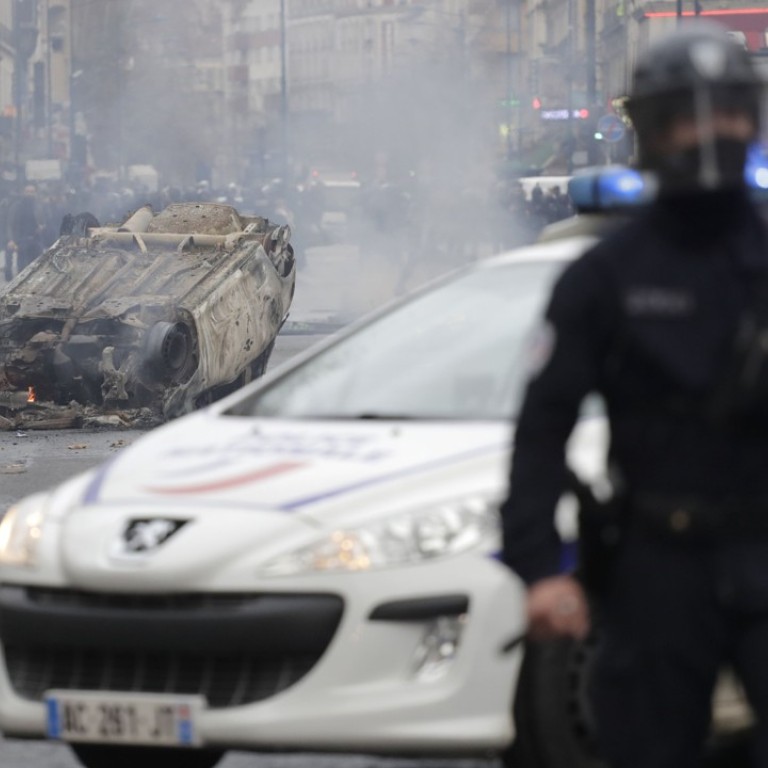
Students blockade schools as protests spread across France in response to Emmanuel Macron’s policies
- Fuel tax protest has expanded to unpopular education changes and also unhappy ambulance workers, as government struggles to solve crisis
French Prime Minister Edouard Philippe has met opposition party leaders as nationwide protests continue to spread across France, with students blockading about 100 schools.
After thousands of masked protesters fought running battles with police and burned cars, buildings and barricades in the most expensive areas of Paris on Saturday, the gilets jaunes – or yellow vests – citizens’ protest movement continued on Monday with anti-government demonstrations at barricades on roads and at fuel depots across France.
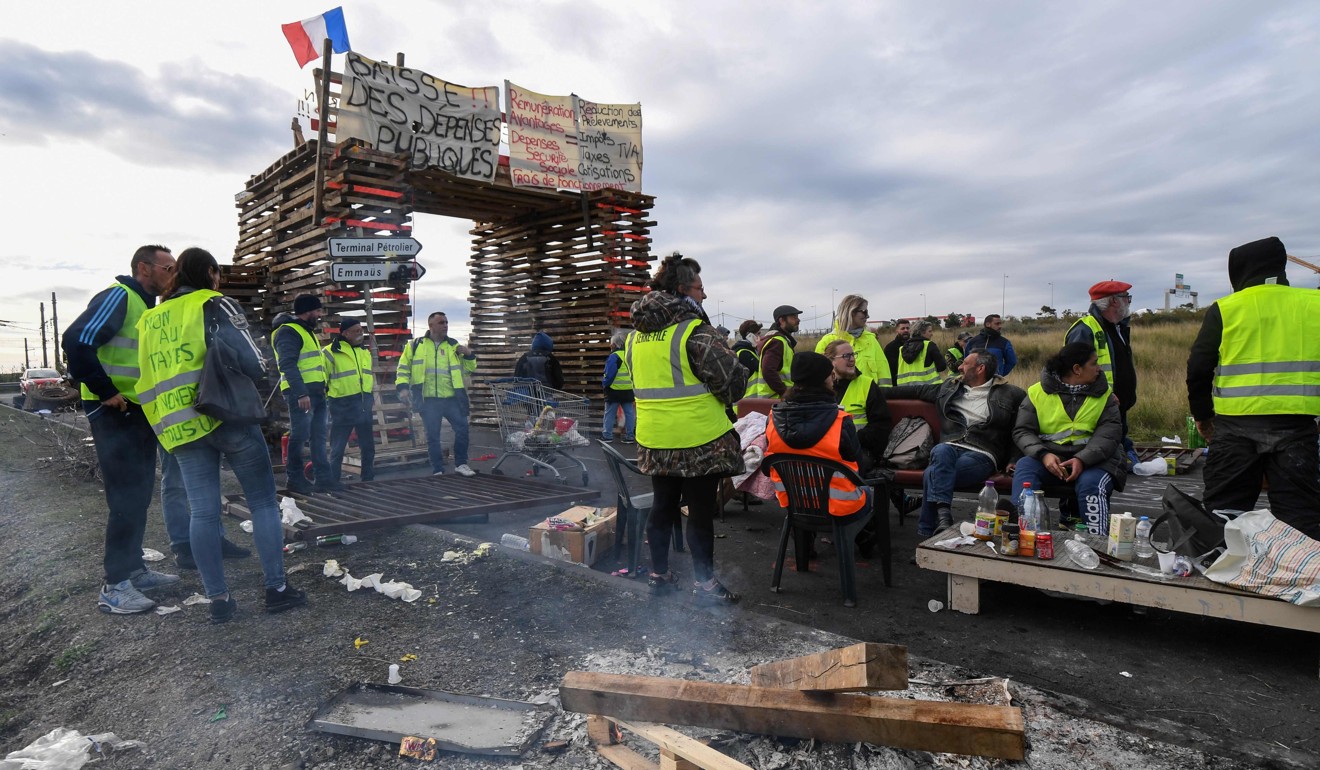
Secondary school students – who have been protesting against changes to colleges and the university system – also seized on the mood of protest and stepped up their blockades.
About 100 schools were fully or partially blockaded around the country, including in the southern city of Toulouse and in Creteil in the Paris area.
Seven teenagers were arrested after riot police were called to the Jean-Pierre Timbaud high school in Aubervilliers in the northern Paris suburbs where a car was overturned and trash bins were set alight.
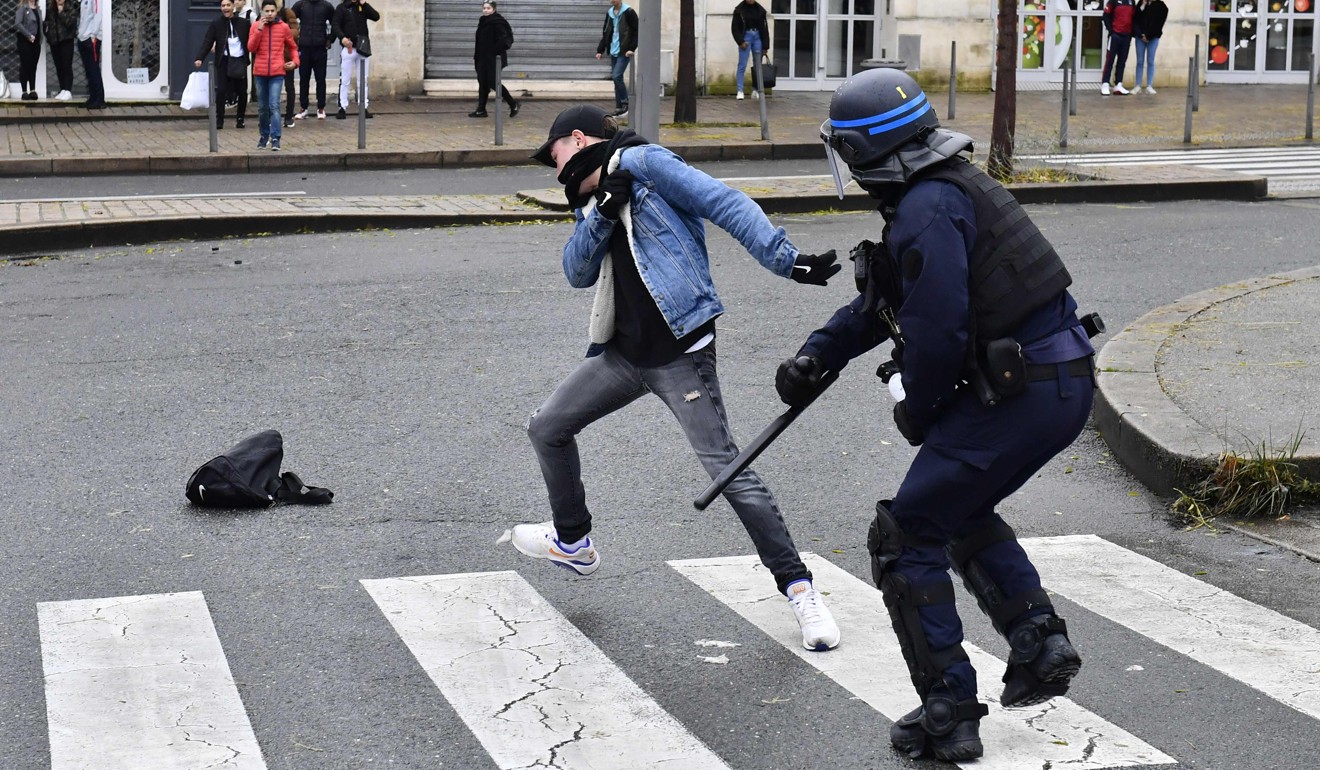
French authorities traditionally fear school students joining protests because their demonstrations often spread quickly. An official at the education authority in Creteil said: “Pretexts are clearly being used to commit urban violence.”
An 80-year-old woman died in Marseille on Monday after she was hit by a police tear gas grenade on Saturday. She was inside her flat and opened her windows to close her shutters when she was hit by the grenade as police confronted protesters. She died in hospital after surgery.
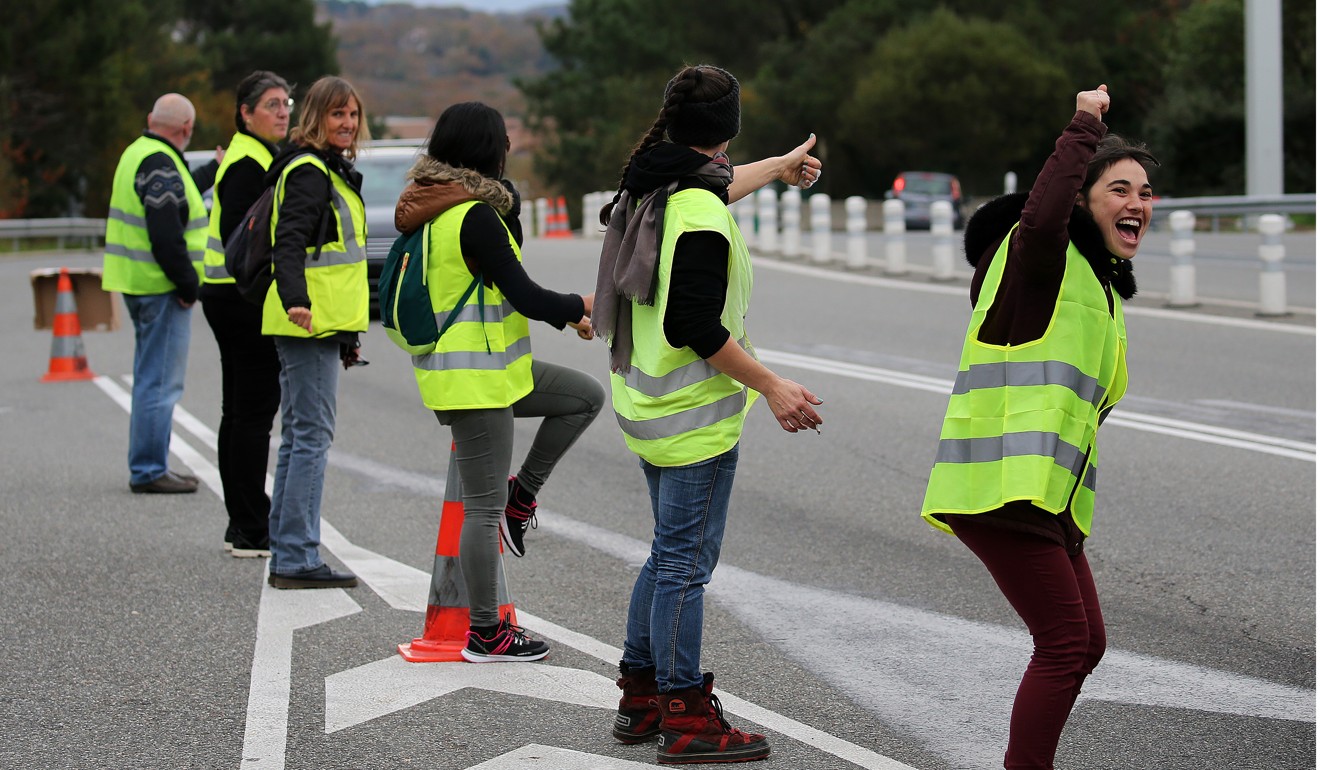
Meanwhile, 11 fuel depots across France were blockaded by protesters and shut. Over 70 service stations had run out of fuel and restrictions were in place in Brittany on how much fuel motorists could buy.
An opinion poll for Harris Interactive taken after Saturday’s violence in Paris found 72 per cent of French people still supported the protest movement, which began last month in response to a rise in taxes on fuel and has morphed into opposition to the government of President Emmanuel Macron, amid a sense that the tax system is unfair and favours the rich.
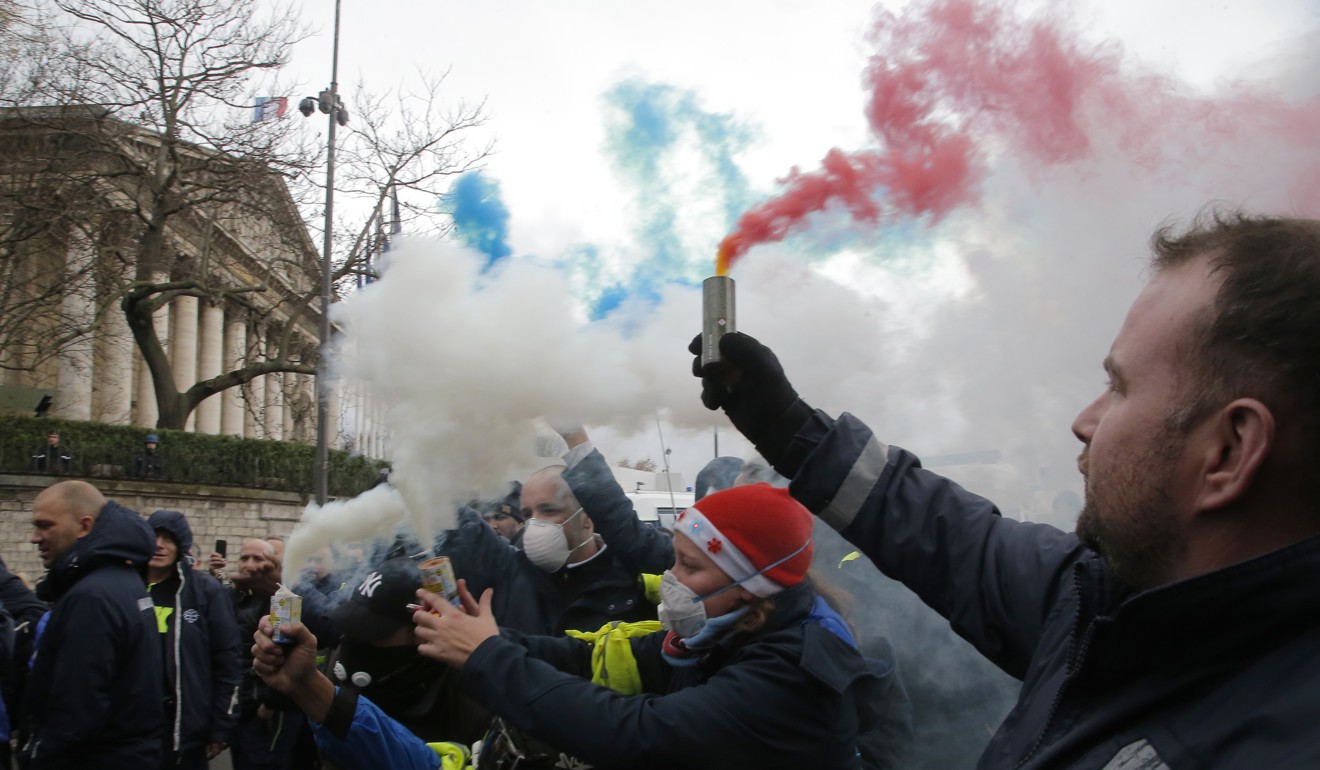
The prime minister is expected to meet protesters’ representatives on Tuesday, but the grass-roots movement, which emerged on social media, has no leadership or defined structure. One Paris representative said he received death threats warning him not to meet the government.
Jacline Mouraud, one of the protest movement’s main instigators, said scrapping the fuel tax was a “prerequisite for any discussion” with the government.
Macron’s challenge in calming the widespread anger against the government is complicated by his own desire not to yield to street protests, which repeatedly forced his predecessors into U-turns.
“Thinking that, as we have always done for 30 years, that you make a little symbolic gesture and then we sweep the dust under the carpet, that doesn’t resolve the fundamental, structural problem,” government spokesman Benjamin Griveaux said, implying the government would not make major concessions.
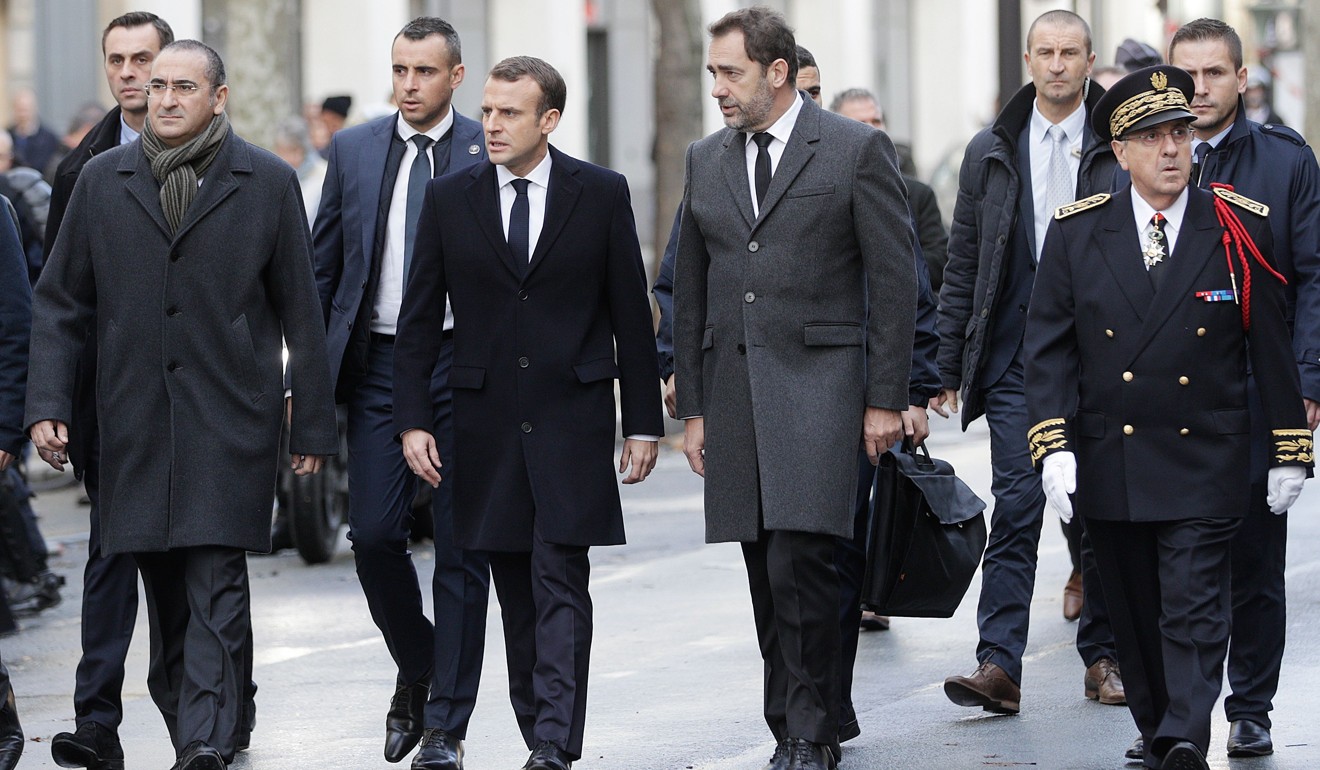
Most opposition politicians urged the government to abandon the planned tax on fuel that was to begin in January – the only exception was the Green Party, which instead said the tax must be fairer.
Laurent Wauquiez, the hardline leader of the right-wing Les Republicains party, said Macron should call a referendum on carbon tax “to let the people’s voice be heard”, but did not specify exactly what form a referendum would take.
Economy Minister Bruno Le Maire said the solution for tackling the low purchasing power of struggling families lay in reducing the tax burden in France, which is among the highest in Europe.
“We must speed up the reduction of taxes,” he said. “But for that we must speed up the decrease in public spending.”
Saturday’s violence in Paris caused concern in the French business community, which claims it has already lost billions of euros, as representatives met the economy minister.
Hotel unions said bookings were down 15 per cent. Shops in Paris and other cities which saw violence, such as Toulouse, said they suffered major losses during the crucial Christmas shopping period.

